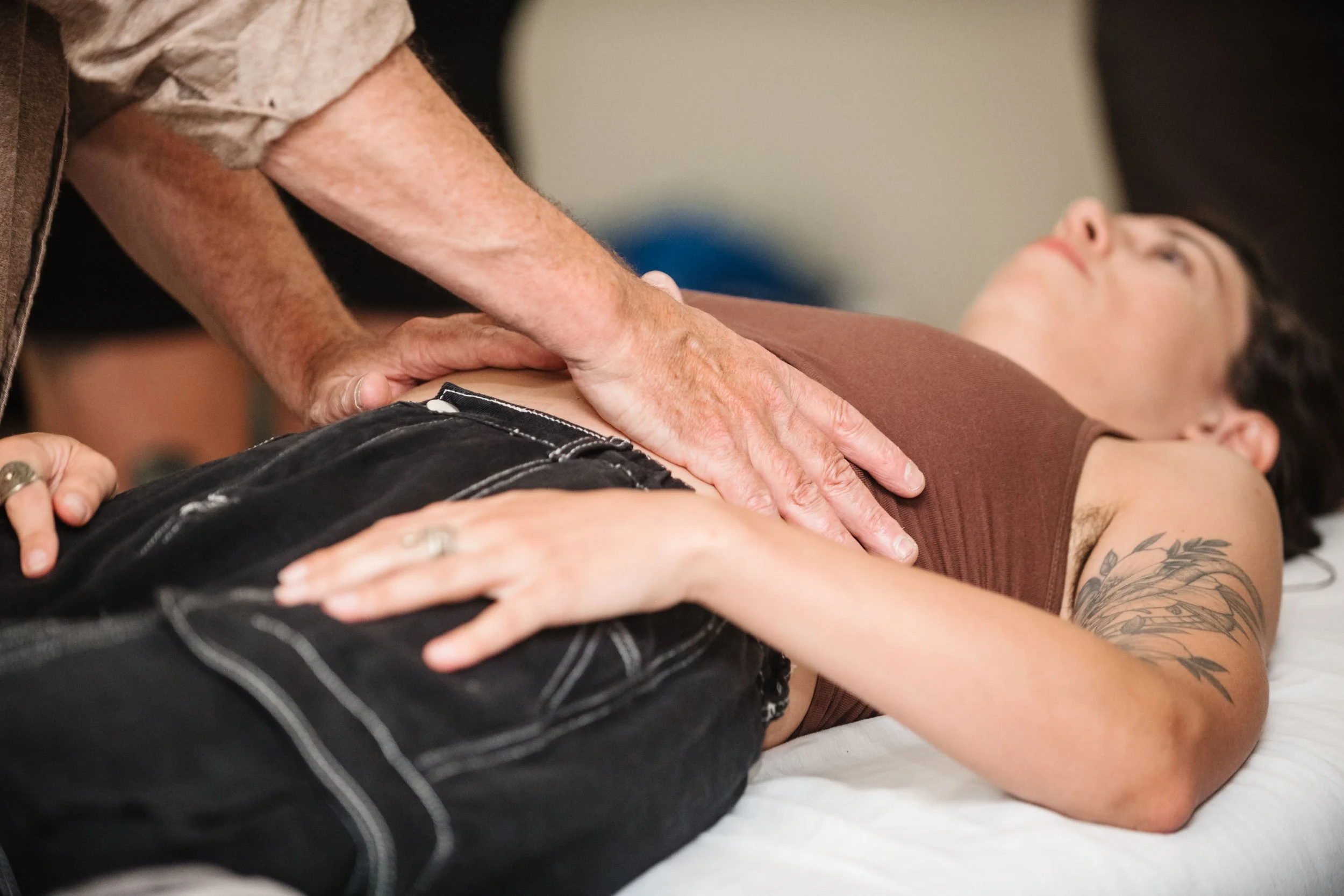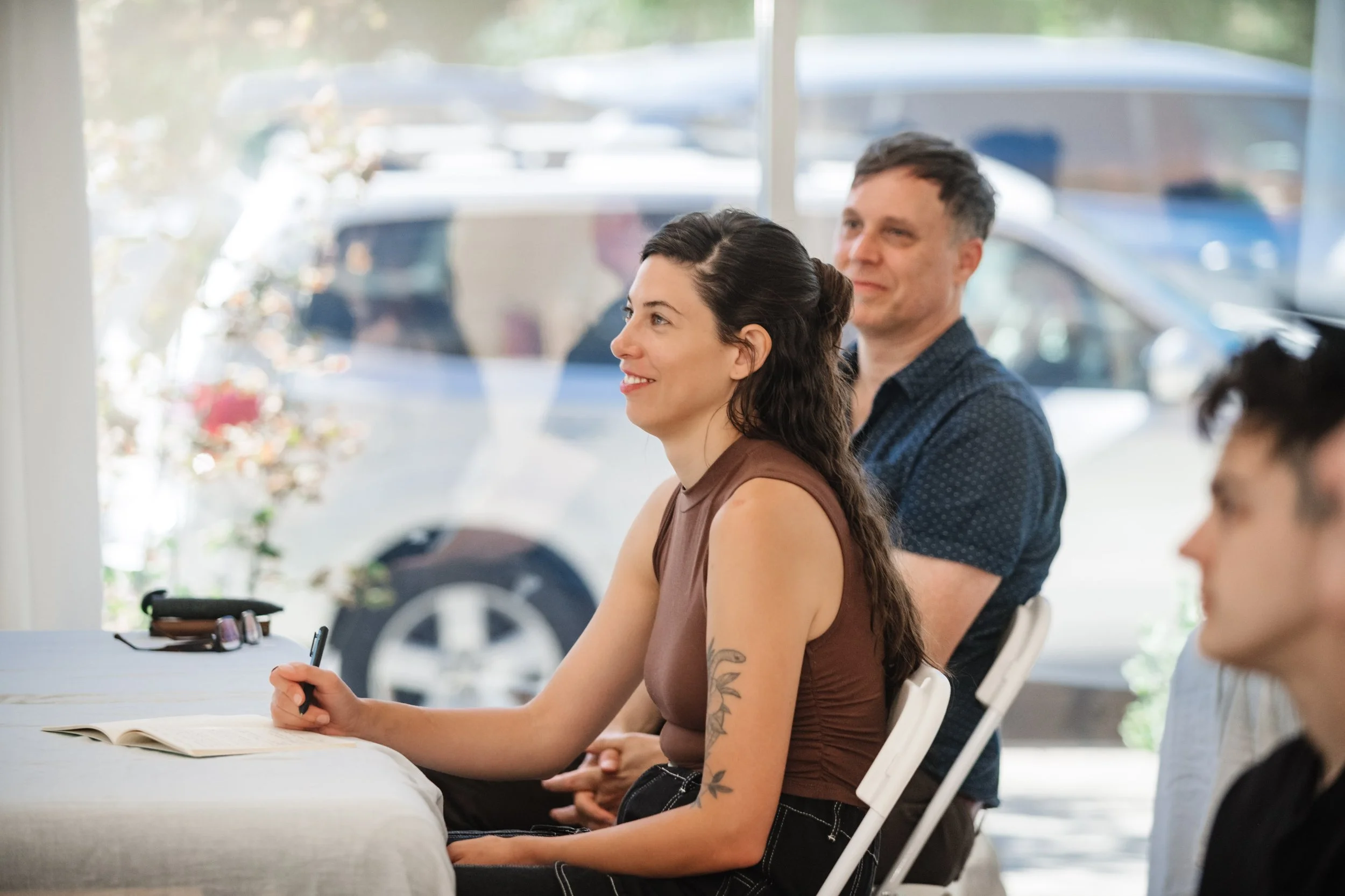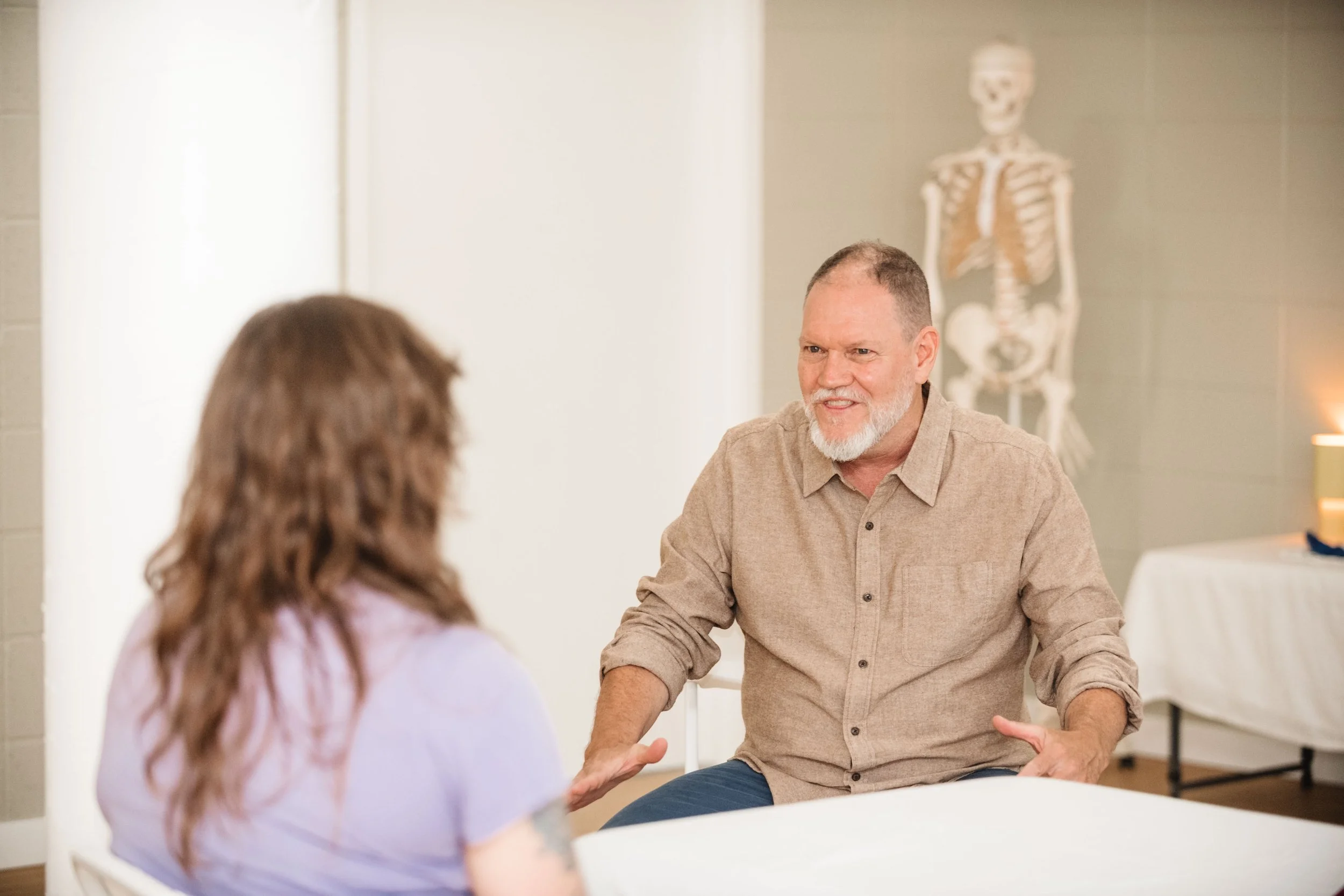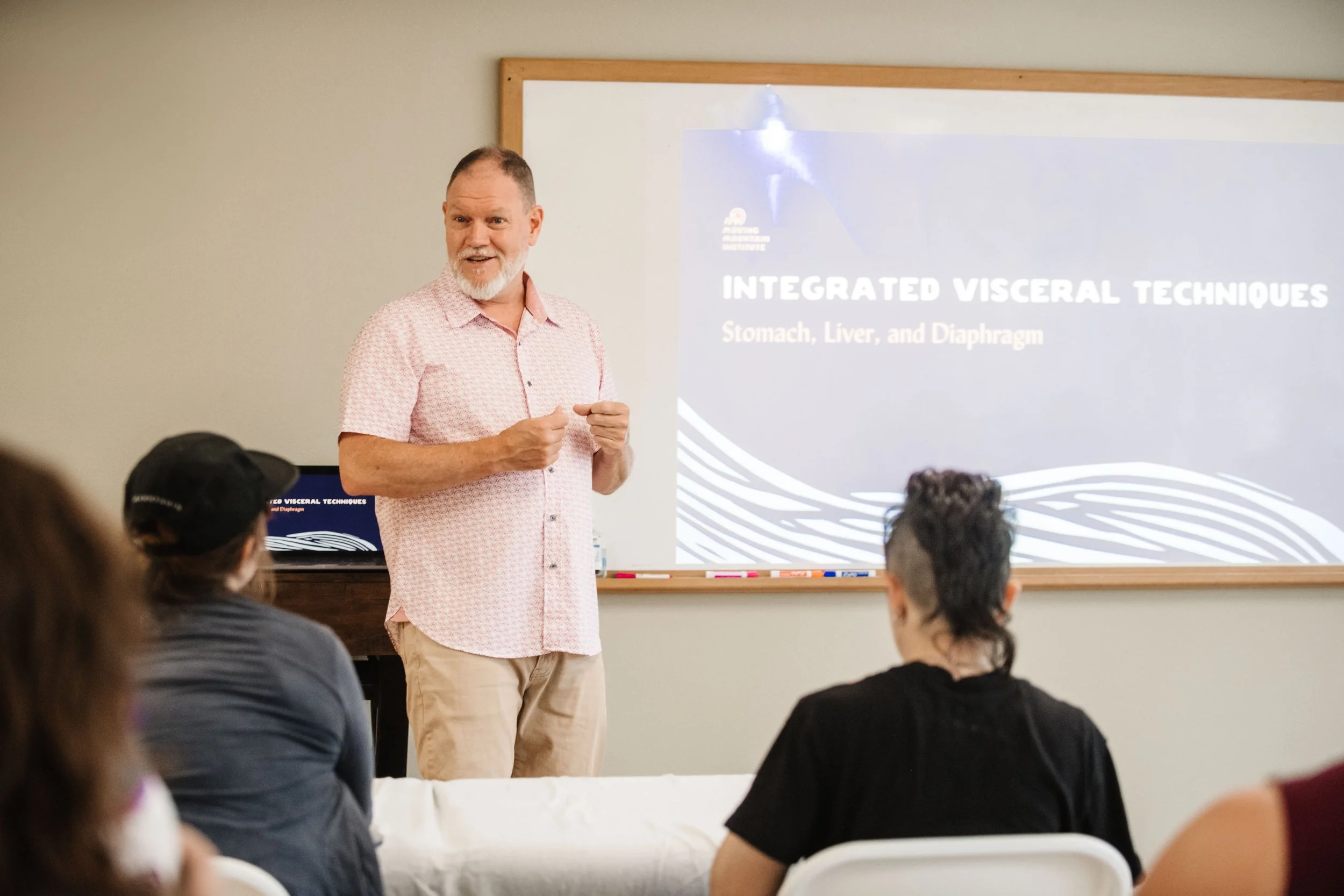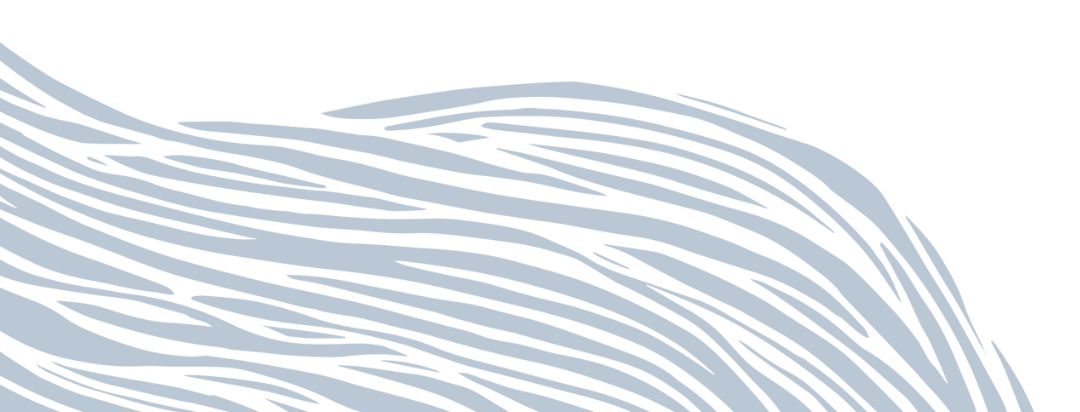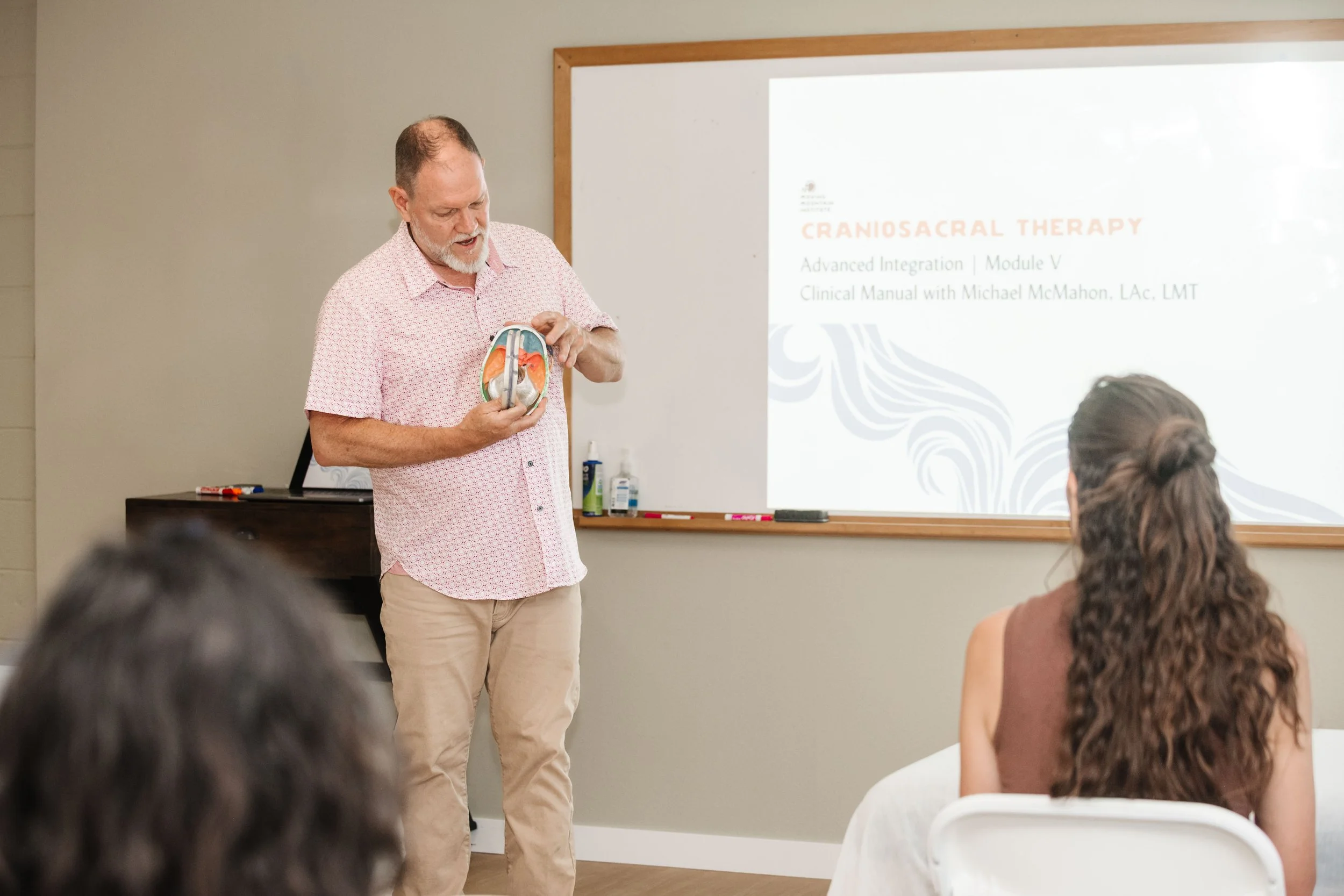BODYWORK + MASSAGE THERAPY CONTINUING EDUCATION WORKSHOPS
Deepen your professional practice and nurture your purpose with Moving Mountain Institute
If you know or sense that there’s so much more to touch-based work than technique alone…
This is the continuing education community for you.
Most professional training begins with (and sometimes doesn’t go farther than) standard protocols and therapies offered up in a bit of a vacuum.
But you know that practice in real life is layered with context—working with individual bodies that are nuanced and complex, with tissue that doesn’t always respond in predictable ways, with interconnected patterns that are just as much about the nervous system as fascia and muscles.
That’s why Moving Mountain Institute supports touch-based practitioners in learning that extends far beyond anatomy and medical theory. Through courses in craniosacral therapy, myofascial release, and integrated visceral techniques, we guide professionals into deeper, meaningful, and highly personalized relationships with this work.
Here, we bridge the gap between scientific knowledge and embodied experience, build on what you already know and sense, and help you develop the kind of practice where you feel confident and alive in your work, not just competent. Welcome!
Our guiding question:
How does the body experience itself?
The kind of practitioner you want to become isn't created through isolated study or memorization. It takes hands-on exploration, working with peers who share your curiosity, and learning from bodies themselves.
At Moving Mountain Institute, you'll develop these three foundations alongside practitioners who, like you, see bodywork as more than just a career. Together, we create a space of shared inquiry, curiosity, and joy, while always maintaining reverence for the profound work we get to do and the people who need us.
Knowledge that lives in your hands, not just your head
We learn so much more about bodywork from how it moves through each of us than from how it’s expressed in a book. Knowledge becomes truly useful when it's filtered through your unique hands, your particular way of sensing, your individual relationship with technique.
Direct experience with patients and your own lived experience builds out your frames of reference. Each body you work with teaches you something new about how the principles of bodywork apply in the real world, while your own embodied understanding deepens your capacity to connect with others.
Experience that builds your informed intuition
Imagination as a clinical skill
Curiosity and imagination are active skills we can utilize in service of our work, in service of insight and connection. Not random whims, but anatomy + metaphor, nurtured through knowledge and experience, refined through reflection. Your imagination bridges what you know scientifically and what you sense intuitively, opening possibilities that analysis alone never could.
These three together build a great skillset and approach to doing any kind of kinesthetic-based clinical work. They become the terrain for genuine insight and authentic connection with your patients.
“Michael’s teaching is the most creative, elegant, engaging guidance I could imagine. It illuminates the body’s landscape while honing its perpetual and inherent mystery.”
“I feel like I’m learning skills that would take years if not decades to accumulate if I studied in a more traditional setting. This series is exceptional. I’m very satisfied with the quality of the community, the content, and the support.”
“When I say I am truly changed for the better, I mean it with every cell of my body. This training and Michael’s approach is revolutionary. I cannot recommend studying with Michael and MMI highly enough. After this training, Craniosacral work and MRF have become staple modalities in my massage practice, and will continue to be going forward. I am a better practitioner, student, and human after this course. Seriously. I feel honored and deeply grateful to have taken part in it.”
Where Principles Meet Practice: Areas of Study
Continuing Education Workshops & Courses
Moving Mountain Institute offers rich, nuanced education in three interconnected approaches: Craniosacral Therapy, Myofascial Release, and Integrated Visceral Techniques. Rather than learning standardized protocols, you'll develop deep, personalized relationships with each approach that allow you to customize your work to what individual bodies need.
-

Craniosacral Therapy
Craniosacral Therapy teaches you to sense and work with the craniosacral system's subtle expressions, developing a quality of touch that communicates safety to the nervous system while addressing restrictions throughout the body.
-

Myofascial Release
Myofascial Release develops your ability to listen to fascial connections throughout the body, following the web of tissue that links everything together. You'll learn to work with tension patterns rather than against them, understanding how restriction in one area creates compensations elsewhere.
-

Integrated Visceral Techniques
Integrated Visceral Techniques explores the visceral-fascial system, where organs and their fascia respond to skilled touch and connect directly to the vagal system. You'll learn accessible techniques that influence whole-body patterns through this highly communicative territory.
These three approaches share the same underlying philosophy: bodies are intelligent, interconnected systems that respond best to listening, patience, and skillful engagement. Each pathway deepens your ability to work with this complexity while giving you specific tools for different situations.
You can study one, two, or all three—building the skills that call to you while developing a practice that can respond to whatever each body brings to your table.
“Michael is an intentional educator.
He presents information clearly and strongly supports each individual’s learning process. I love the classroom/learning space that Michael creates!”
“Stoked. Pumped. Inspired. Challenged. Confirmed. Reassured. Wowed. Grateful.
Thank you for creating this magical course. I am so thrilled to be here.”
How continuing education at MMI works:
Community inside the Classroom
Inside a “flipped” classroom…
Traditional bodywork classes force you to juggle note-taking and watching demonstrations while trying to absorb complex techniques. Our flipped classroom model changes this completely!
This means that your time in the room is spent with your hands, while the concepts and techniques live in the online content that you can return to again and again.
You get to show up to our in-person workshops ready to practice, explore, and actually feel the work in your body. In this way, class time becomes a hive of inquiry, not a lecture hall! It’s more fun, more useful, and intentionally more aligned to how adults really learn.
…And among a cohort
Skills-based learning flourishes in community. That's why our courses use a cohort model where you progress through your training with the same group of practitioners.
It’s a learning environment where we develop trust, explore new ideas and questions, and deepen our understanding through everyone’s different perspectives.
The cohort becomes your container for sustained inquiry, both conceptually and in your hands. It allows you to apprentice yourself to the body as the source of lifelong learning—surrounded by others doing the same work, asking similar questions, and discovering alongside you.
The core principles beneath each course
And the beliefs that guide our community of practice
Listening is critical.
Everything begins with developing "listening hands"—the ability to feel and follow what's happening in tissue. We can't treat what we don't notice, so tactile curiosity is emphasized at every turn.
The body has a story to tell.
Bodies carry intelligence about their own experience that exceeds what any practitioner can impose. We learn to collaborate with this wisdom rather than override it.
Technique is both direct and indirect.
We teach the dance between engaging tissues directly (stretching along lines of tension) and indirectly (following tissues into their tension pattern). This balance creates possibilities that neither approach achieves alone.
Anatomy is relational.
Rather than memorizing isolated structures, we emphasize how tissues connect and influence each other. This approach makes anatomy both more clinically useful and more engaging to learn.
Context always matters.
Bodies exist within physical, emotional, and social environments. We consider these contexts essential to understanding and effectively addressing what patients experience.
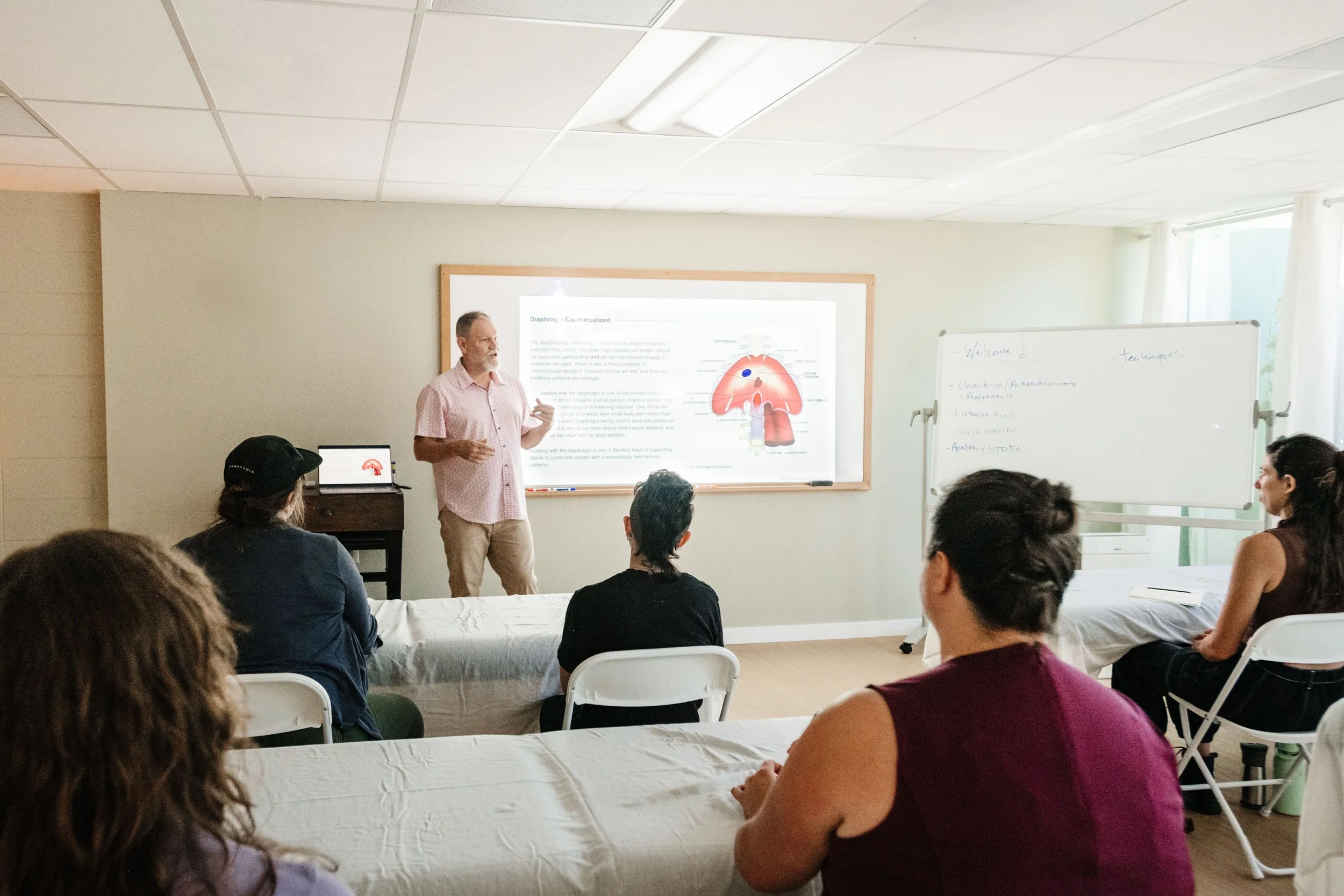
Are these continuing education workshops right for you?
Our courses are particularly geared towards…
-
…including massage therapy (LMT), acupuncture (LAc), naturopathic medicine (ND), and more
-
…whether you’ve worked in massage therapy and felt limited by what you learned, or you’re a practitioner in another field wanting to add skilled touch to your toolkit
-
…that remains meaningful and sustainable to your own body for years to come
-
…with their professional practice
Learning is serious (yet fun!) business around here
A note from Michael, our founder and your teacher
After 25 years of clinical practice and teaching, I've come to believe that the excellent practitioner is a forever student, and that’s why Moving Mountain Institute exists.
I founded MMI because I believe that bodywork education should honor rigorous knowledge and technical precision as well as the wisdom inherent in every body, and every practitioner’s unique way of sensing and responding.
I take teaching as seriously as I take clinical work. Every aspect of our courses, from the flipped classroom model to cohort learning to how we pace material, is designed with deep attention to how adults actually learn complex kinesthetic skills. Plus, I believe that learning should be fun and engaging, satisfying our innate curiosity and our desire to help our patients.
Here, you’re encouraged to come into your own relationship with the technique so it can come through you authentically and uniquely, carrying your specific flavor. We’re all prismatic—the same thing can pass into and through us and it will come out differently in everyone. If you find your own relationship with the work then your work will be inspired, it will be evolving, it will carry energy and connection. Tissues will feel that.
I look forward to seeing you in class!
Choose Your Path
Whether you're drawn to one specific approach or curious about all three, each continuing education workshop offers its own rich exploration into the art and science of skillful bodywork.
Or, if you have a group of practitioners— Michael can come to you!
Frequently Asked Questions
-
While much discussion about bodywork tends to center departed elder practitioners who 'discovered' different aspects of the work, we approach this history differently. At MMI, we believe in proper attribution, which begins with acknowledging that bodywork wasn't ‘discovered’ by white luminaries. The principles that guide this work have Indigenous roots—specifically with the Shawnee people who taught A.T. Still, the credited founder of osteopathy.
When we recognize these origins, we can practice more ethically while honoring the living, vibrant cultural traditions that inform our work. This isn't just about correcting history, but also creating a more honest and respectful relationship with the knowledge we carry forward.
We also recognize that each body brings its own cultural context and lived experience to both the treatment table and the classroom. As practitioners, we are not treating an idealized western-European White cisgender hetero body. We are treating specific bodies impacted by social realities. This fundamental truth creates more space for everyone's embodied wisdom to be recognized and honored in all the spaces we share.
-
Michael McMahon, LAc, LMT, is Moving Mountain Institute’s Founder and our lead instructor. He teaches workshops, training series, and lectures to practitioners in a variety of healthcare fields through the Institute. He has developed a novel curriculum as a former adjunct faculty member at the National University of Natural Medicine (NUNM) where he taught for 9 years and was recognized with an institution-wide award for Innovation & Excellence in Teaching.
He frequently works with two assistants in the classroom, Regan Goodrich and Krystal Meyer. Regan (LMT + L.Ac) is a long time bodyworker and acupuncturist at Seed Acupuncture + Massage, and Krystal has been practicing as an LMT since 2015.
-
You can study any combination of modalities in any order. Many students eventually complete nearly all of our courses, while others focus on a particular area of study. You can choose what best supports your goals!
-
In general, courses typically involve two 3-day weekends of in-person training in Portland, Oregon, in addition to self-paced study online. Content in the online classroom opens up to 6 weeks before the course begins and remains available until 3 months after it ends, so you can get a head start and then continue to review and integrate the work into your practice.
-
MMI courses are designed for licensed professionals and those enrolled in a healthcare training program or are otherwise on a licensing path in a healthcare field (LAc, LMT, ND, etc.). If this does not apply to you but you would like to be considered for this course, please reach out to us and we will be glad to discuss it with you and make sure your interests are a good match for a particular course. Completion of MMI courses does not supersede any state licensing requirements.
While some courses may have prerequisites, our curriculum is designed to deepen understanding whether you're new to these modalities or already have experience. Each course page includes specific prerequisite information, and if you’re unsure, please feel free to reach out to us and ask!
-
Courses typically involve two 3-day weekends of in-person training in our classroom in Portland, Oregon, in addition to self-paced study online.
-
Most of our in-person courses are eligible for CE hours through the Oregon Board of Naturopathic Medicine (OBNM), the National Certification Commission for Acupuncture and Oriental Medicine (NCCAOM) and the National Certification Board for Therapeutic Massage & Bodywork (NCBTMB), and are eligible for CE's with the Oregon Board of Massage Therapy (OBMT). Michael McMahon is also an approved provider with the National Certification Board for Therapeutic Massage & Bodywork (NCBTMB). All attendees will receive an electronic certificate of completion after attending each course.
-
Yes! Payment Plans are available for all course series and include a 5% administrative fee and are subject to our refund policy. A deposit is due at registration and represents ⅓ of the total series price (+ applicable discounts and the administrative fee). The remaining balance is divided into 2 payments scheduled 1 and 2 months after the first payment. Your card will be charged automatically.
We also offer earlybird discounts (15% off the total tuition up to 30 days before the course begins) and equity pricing for BIPOC practitioners (20% off the total tuition on all courses and series).



